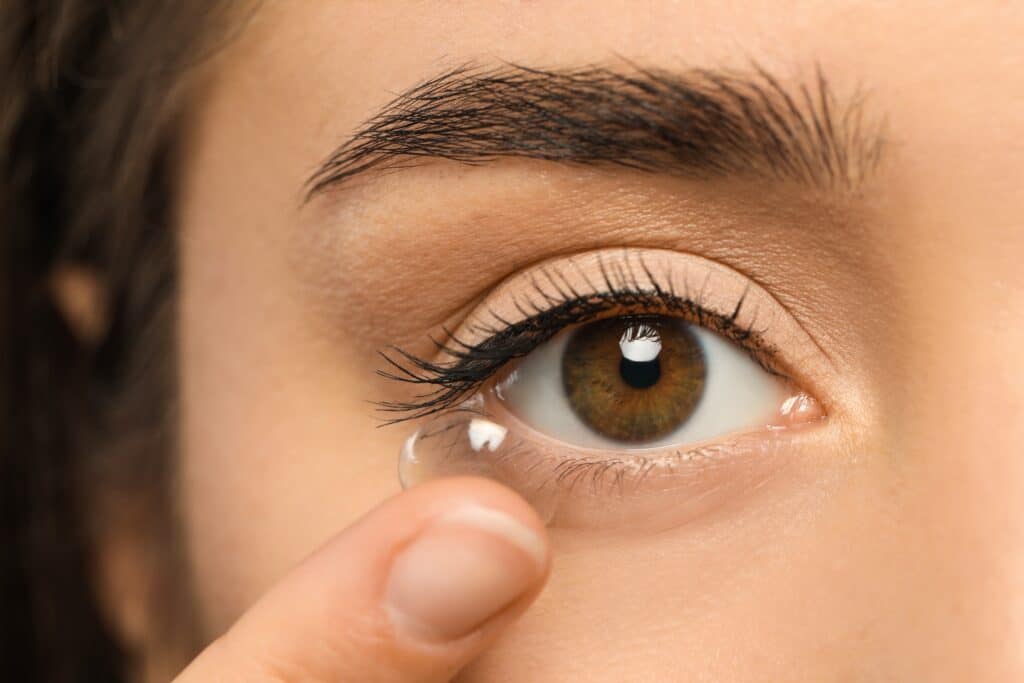Contact Lens
What are Contact Lenses?
If you have refractive errors and want clear vision without needing glasses, you may want to consider wearing contact lenses. Contact lenses are thin, clear discs that you place on the surface of your eye to correct refractive errors.
Refractive errors are caused by the shape of your eye affecting its ability to refract light. Contact lenses correct refractive errors by adjusting how light enters your eye.
However, they also move with your eye to provide a more natural field of vision. Contact lenses require a prescription and personal fitting to ensure they are safe and most effective for your vision.

What Types of Contact Lenses are Available?
Several kinds of contact lenses are available. The most common type is soft contact lenses, which many patients find comfortable and easy to wear.
As many kinds of contact lenses are available, talk to your eye doctor to determine which type may be best for your visual needs and lifestyle.

